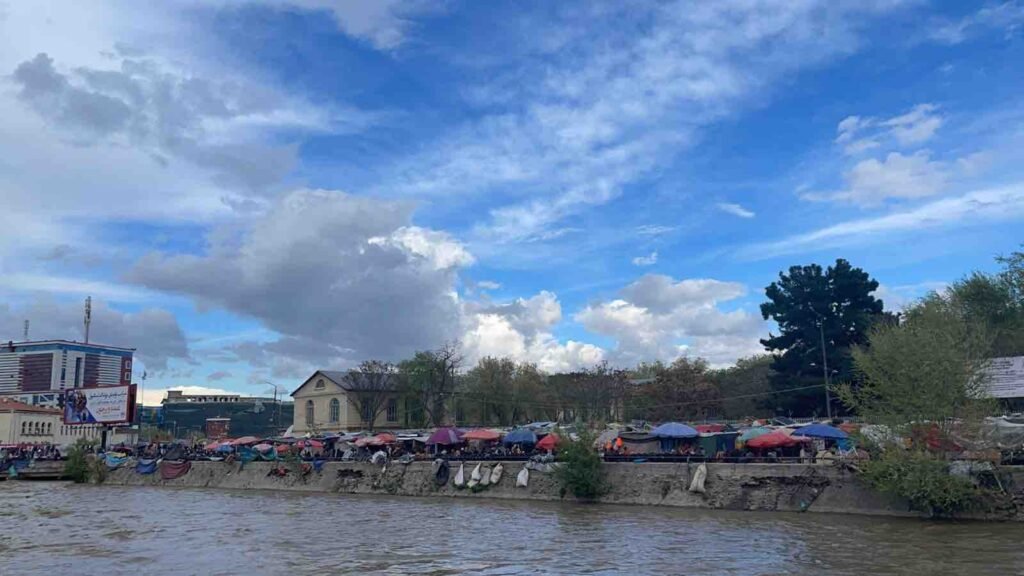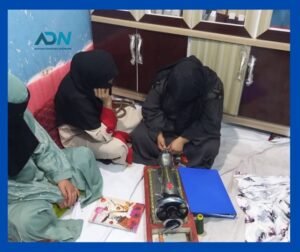The Illusion of Peace: Why Afghanistan Needs More Than an End to War

Kabul River and its surroundings in April 2024. Photo by @AADIL for ADN.
By Nazila Jamshidi
Afghans, as a nation at war, often with themselves, understandably demand an end to the conflict. Recently, this demand has increasingly come from women, who no doubt have been profoundly affected by the war.
In their activism, statements, and appeals to world leaders, Afghan women are voicing their need for peace. One notable example is women’s rights activist Mahbooba Saraj, who called for establishing peace in Afghanistan during her speech in front of Pope Francis. She highlighted that Afghanistan has been at war for over four decades and urged the world to focus more on building institutions that promote peace rather than conflict.
Similarly, Fatima Gailani, another women’s rights activist, since the collapse of the Islamic Republic and the rise of the Taliban has consistently emphasized that the war in Afghanistan has ended, offering the country a chance to achieve lasting peace. They demand the world to give the current situation a chance for the sake of enduring peace.
From their statements, it is inferred that they believe the country now has a chance to move towards enduring peace, and thus, no efforts that could lead to another war should be supported. For example, Fatima Gailani, in her interview with a CNN journalist, stated that the country is now “in one hand”—meaning ruled by one group—and has the chance to establish peace.
Some men also justify their efforts to whitewash the Taliban by calling for peace and an end to the war in Afghanistan. While demanding peace is legitimate and is the call of every Afghan—given the country’s devastation from war and conflict—it is not clear what kind of peace these women and men are referring to.
A broader understanding of peace, and the most widely accepted definition, encompasses both the absence of open violence within society and the creation of conditions that allow people to live without fear or poverty, within a broadly agreed political system.
In light of this and similar definitions, neither the current situation in Afghanistan nor the future envisioned under the Taliban’s governance, economic policies, and treatment of people shows any signs of peace.
The Taliban have established a highly exclusive government—all Taliban, and all men—which does not reflect the voices and wishes of Afghan citizens. They are incapable of and unwilling to meet citizens’ basic needs, as evidenced by their inadequate response to natural disasters like the earthquake in Herat and the flood in Baghlan. Most importantly, their systematic oppression of women, which has significantly excluded women from society and promoted a culture of gender-based violence, carries no message of peace.
John Galtung’s concept of “positive peace,” which goes beyond the mere absence of war (negative peace), can help explain why the current situation in Afghanistan is not peaceful by any means.
According to Galtung, peace includes the presence of social justice and the integration of human society. His model of structural violence highlights how social structures can harm individuals by preventing them from meeting their basic needs, a concept that has profoundly influenced the study of social justice and human rights.
Under the current regime, at least half of the country’s population—women—are deprived of their basic rights and are systematically oppressed, amounting to gender apartheid. Human rights values such as freedom of expression, access to a just and fair judicial system, food security, and modern education are evaporating from society.
Ethnic minorities have no voice in decisions affecting their lives and continue to be targets for terrorist groups. This situation reflects negative peace, which many claim as a peace that deserves a chance.
Unfortunately, ending the war and giving the current so-called peace a chance is becoming an excuse for many to legitimize whitewashing the Taliban and supporting their presence in the country.
It is true that war is hell, and ordinary Afghan citizens have suffered from a lack of peace for decades. However, the current regime, with its present characteristics and policies, cannot and will not bring peace to the people of Afghanistan.
Peace requires a system of social justice, the valuing of human rights, dignity, and freedom, the eradication of poverty, and a form of governance that represents the voices of all citizens. What Afghans need is the establishment of positive peace, which goes beyond the mere absence of battlefield killing and active conflict.
Nazila Jamshidi – a gender equality and human rights specialist involved in Afghanistan’s development and democracy processes for the past decade – has worked for the UN, USAID, the International Federation of Red Cross.
Note: The contents of the article are of sole responsibility of the author. Afghan Diaspora Network will not be responsible for any inaccurate or incorrect statement in the articles.






